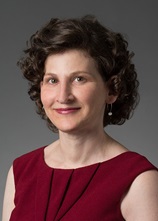Stories
Helping Lawyers Make Critical Career Transitions: Jody Rosen Knower on Sidley’s Training and Professional Development Program
We spoke with Jody Rosen Knower, Sidley’s Chief Training and Professional Development officer, about how the firm’s award-winning training initiatives have evolved over time.
Share a little about your tenure with Sidley. You initially started in California and are now in New York.
JRK: That’s right. I joined the firm in the spring of 2008 in our Los Angeles office. At the time, Sidley had begun to really prioritize its efforts to build its first professional development team for lawyers. We already had Continuing Legal Education (CLE) professionals at the firm. I viewed this as an opportunity to join a team that was newly being formed, and one that was within a firm that has long had a commitment to training its lawyers. I was ultimately promoted into my current role in January 2012.
So it was a privilege to come on board right at the start. What was most heartening is that we had so much energy and commitment to professional development for lawyers even without having a full team assembled. The early days were all about assessing what was already in place at the firm with regard to training, and asking, “Well, okay, what’s missing? How can we build on the great foundation we have?”
I remember within the first month or so after I had gotten to LA, I was invited to speak to the group heads in the office about training initiatives. I wasn’t sure what they might have in mind—what they felt my job was going to be—and so I did a quick presentation. I used PowerPoint, but I turned the whole idea of it on its head: There were images on my slides, versus what we sometimes in our world call “PowerPoint abuse”— millions of words on each slide, in very small type. [laughs] One of them, for example, featured a bell—the kind you would ring at a hotel desk to get service. I used it symbolically to say, “How can we be of service? What are your hopes and expectations?”
How has your team’s work evolved over time to suit the needs of a growing organization?
JRK: Back then, our original mandate was to focus on our associates and specifically those in the U.S. offices. Over time we have expanded that to focus on all lawyers in all offices around the globe. The coordination element of that has become both more complex and also more rewarding. You’re knitting together people in practices from around the world.
In the early days, a lot of what we heard was, “How do we help junior lawyers transition better to practice? How do we help them understand the realities of what’s expected in this environment?” Even to this day, we spend a lot of our energy helping people make that transition, and then also helping them make other critical career transitions: moving from a mid-level to a senior associate; moving from associate to partner; moving from an individual contributor to a more successful business developer who’s bringing in work for other people; and moving into leadership.
What are some of the recent initiatives that have been particularly gratifying?
JRK: This is now our fifth class where we’re providing year-long onboarding support to associates and counsel who have moved on to become partners. It covers a lot of things, including helping them understand all the finances that change when you become a partner. You’re no longer an employee and you have to pay your own taxes. Your compensation is determined differently. Then, there are obviously expectations around business development, so we give people more support around that.
I’m really proud of what we’ve done with that initiative—how successful it has been and how supported participants feel. What I also find rewarding is the suggestions we solicit from current new partners that we can implement for the next class of new partners. We tell them, “Please let us know what’s working and what’s not working because some of the things you're benefiting from are ideas that came from your peers a year ago.” So it becomes a virtuous cycle.
Another project I would mention is our new initiative to help folks who are interested in pursuing careers as in-house counsel. We’ve launched a database to which all lawyers have access. Currently, it has nearly 1,000 in-house jobs that we curate from client and alumni referrals, job postings on client websites, and third-party job boards. This is a new conversation people are having around the understanding that not everybody wants to become a partner. Our team is a real resource for people who are taking their first tentative steps toward that conversation.
What has the feedback been like over the years in terms of the impact your team has made?
JRK: I will confess that I have a folder in my email called “Feedback.” I started keeping it as kind of a feel-good resource—when I have a tough day it’s a good place to go [laughs]. We often, for example, hear from people at the end of their first year who say they feel like they have their legs under them. They say they feel poised to step into their role as a new partner with confidence and with skill, and they feel like we’ve taken a really thoughtful approach to giving them the information they need. That type of feedback is always very gratifying.
Contacts

- Stay Up To DateSubscribe to Sidley Publications
- Follow Sidley on Social MediaSocial Media Directory